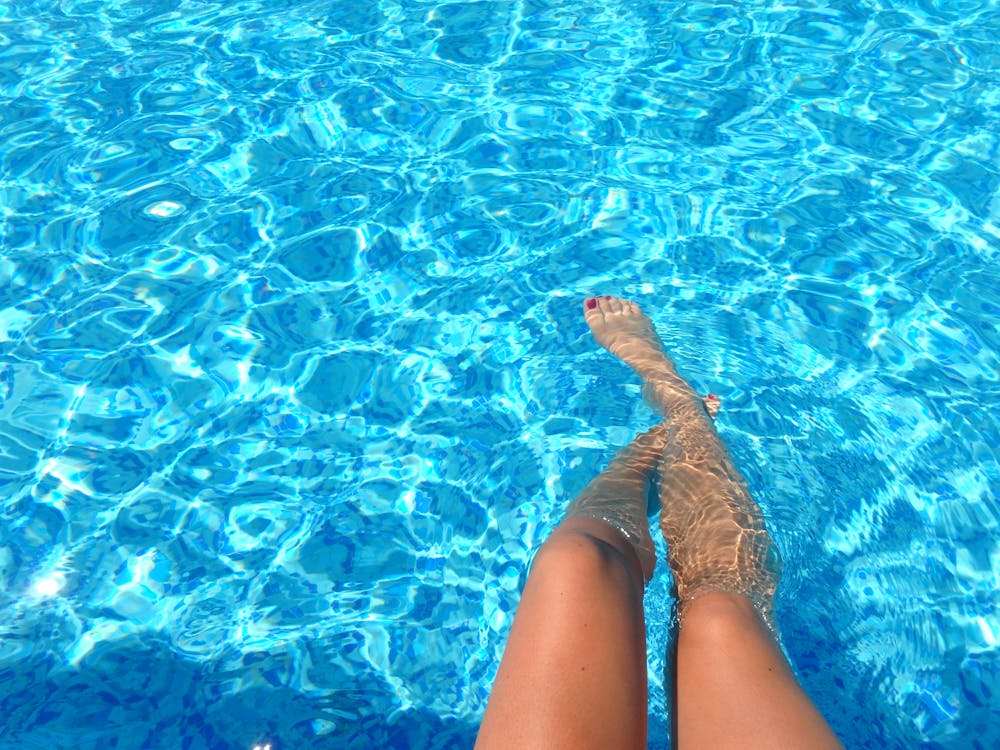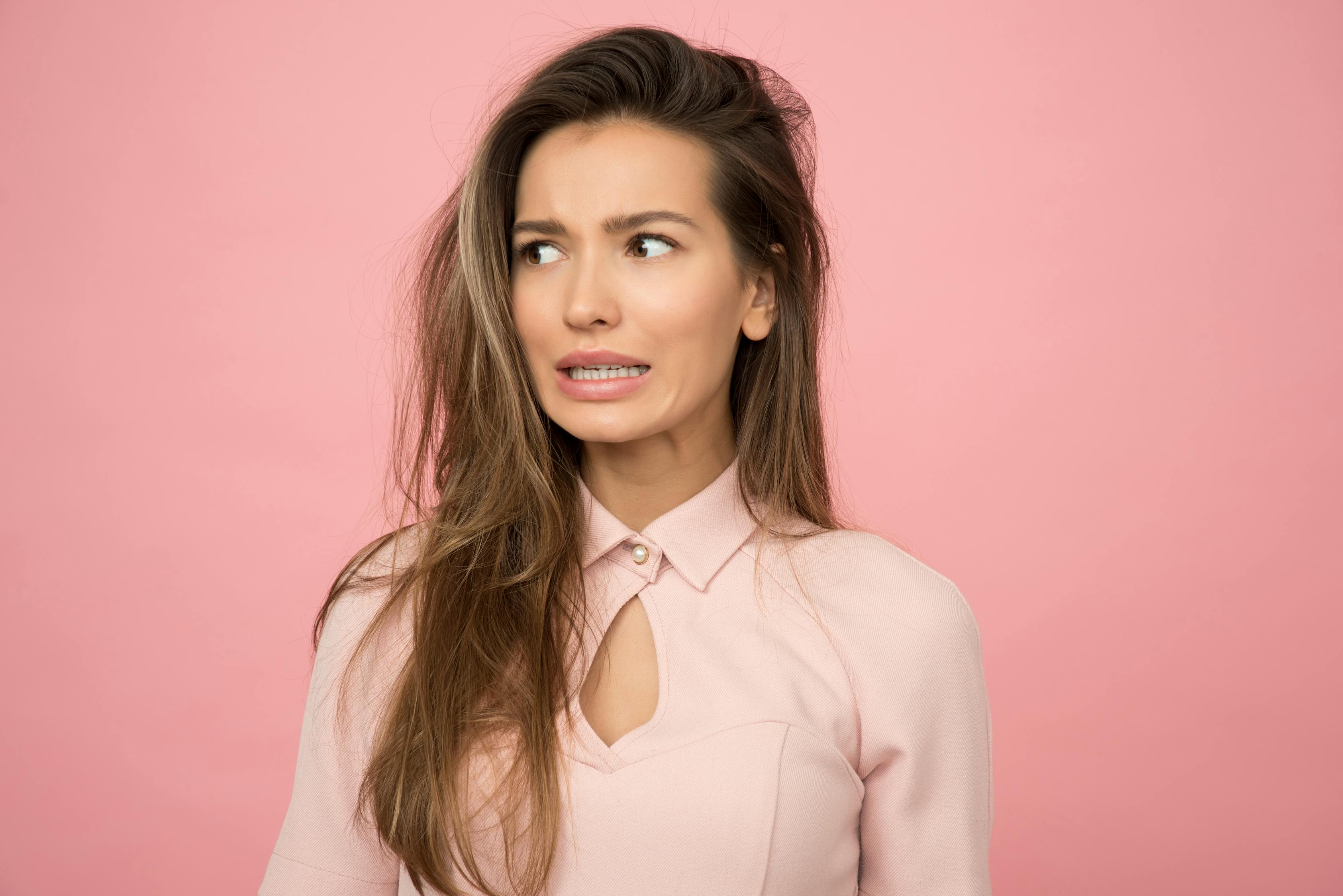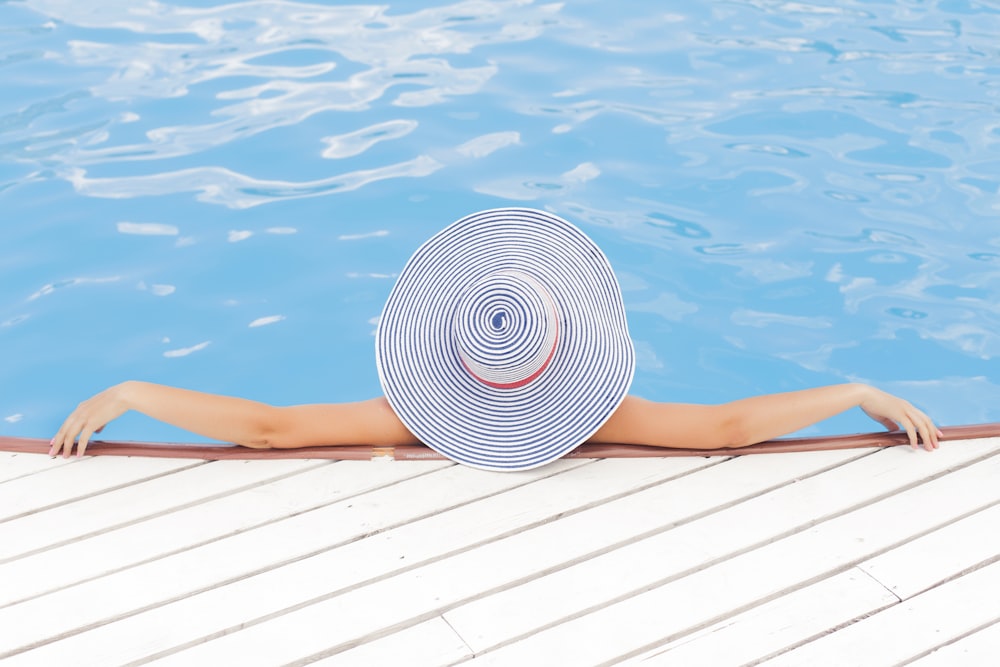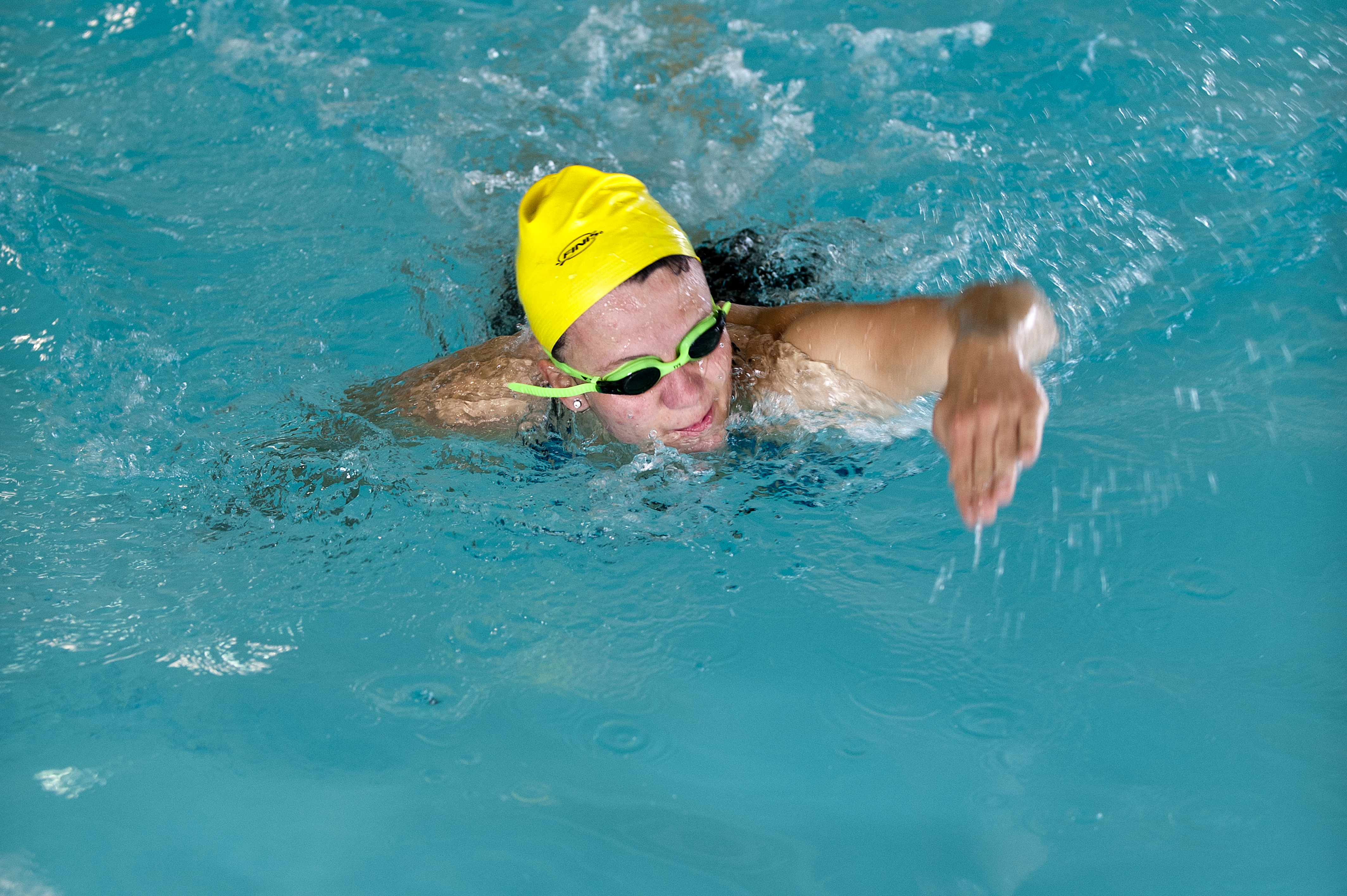How To Repair Chlorine Damaged Hair

- Chlorine Chemical Breakdown
- What Does Chlorine Do To Your Hair?
- Strength Damage
- Color Damage
- Is It Bad To Leave Chlorine In Hair Overnight?
- The 3 Best Swimmer Shampoos
- 1. UltraSwim Dynamic Duo Repair And Conditioner Swimmers Shampoo
- 2. Paul Mitchell Shampoo Three
- 3. TRISWIM Chlorine Removal Swimmers Shampoo Moisturizing Repairing Hair
- How Do You Get Chlorine Out Of Your Hair Naturally
- How To Avoid Chlorine Damage All Together
- Swim Cap
- Rinse Hair
- Use Oil
- Conclusion
There is no better way to fully experience summer than chilling by the pool. The feeling of jumping into a cool, refreshing pool is simply unbeatable. The water can often feel so good that you forget about all of the pool chemicals that may damage your hair. Whether you are a professional swimmer or a part-time pool floater, chlorine can really affect the health of your hair. Running your fingers through your hair will never be as painful as it is after your hair has dried after swimming all day. Furthermore, days after swimming your hair will still feel weak, knotty, and crisp.
Of course, none of us want this hair, but we also don’t want to give up swimming. Believe it or not, there are many ways one can recover their hair from chlorine damage. There are also ways to avoid chlorine damage before you even step into the pool. If you are someone who loves to swim, this article goes out to you.
Chlorine Breakdown

Swimming pool.
Pool disinfectants are an essential part of any public swimming pool. Public pools are full of dangerous bacteria that thrive in bodies of water. Without a pool disinfectant, bacteria can easily make their way from one person to the next. Additionally, pool chemicals are used to maintain the chemical balance in a pool. Improperly balanced pool water can severely irritate the skin and eyes, as well as give off a cloudy hue. To take care of these issues, chlorine is most commonly used.
Thinking back to high school chemistry, chlorine (Cl) is really just an element like sodium (Na) or potassium (K). What we know as pool chlorine is essentially different chemical compounds like sodium hypochlorite or calcium hypochlorite. These compounds are added to water to form chemicals like hypochlorous acid. This acid attacks bacteria by attacking the lipids in the cell wall and destroying structures inside.
What Does Chlorine Do To Your Hair?

Dry, frizzy hair.
Strength Damage
As we just discussed, hypochlorous acid is one of the most common chemicals created from pool disinfectants. Although it kills bacteria, one can only imagine what it does to your hair. One study of Japanese elite swimmers found that there was “complete disappearance of hair cuticle”, ultimately decreasing the diameter of hair strands. With this study in mind, it is easy to see why your hair always feels so thin and unhealthy after a day at the pool.
Color Damage
Adding on to the power of hypochlorous acid, this chemical can penetrate the hair cortex through the cuticle. Because of this, it can oxidize and degenerate melanosomes there. Put simply, it has the power to discolor one’s hair.
If you have blonde hair, you may have noticed that pool chlorine has dyed your hair green. It is actually a myth that pool chlorine turns your hair green. The truth is that copper in the pool dyes your hair green. This Statue of Liberty color can be traced back to the binding of copper ions in the amino acids in hair. If you have dyed your hair recently, it is even more likely that your hair will turn green. Bleaching or dying your hair makes it more susceptible to copper intake because of the increased porosity of hair after dying it.
I kid you not, this has happened to so many of my blonde-haired friends so lucky for you, I know how to remove this green color. Besides cutting off a couple of inches of your hair, you can actually use tomato juice to get rid of your witch hair. Rub tomato juice into your green hair and let it sit for 30 minutes to an hour. Once you wash your hair out you should be all set, if not repeat the process again.
Is It Bad To Leave Chlorine In Hair Overnight?

Woman sitting at the pool.
Yes. Always be sure to thoroughly wash your hair with shampoo and conditioner after swimming to remove excess pool chemicals. Keeping pool chlorine in all night can leave your hair dry and your skin irritated and red. If you really can’t find access to shampoo or conditioner, try as hard as you can to wash your hair out with water. Obviously your hair will not be as healthy as it would be if you washed it with shampoo and conditioner, however, it is better than just letting the chlorine sit in and dry out your hair.
The 3 Best Swimmer Shampoos
So… you notice you have chlorine damage on your hair. If you are looking to fix the chlorine damage there are some really amazing shampoos that are specially formulated for swimmers.
1. UltraSwim Dynamic Duo Repair And Conditioner Swimmers Shampoo

UltraSwim Dynamic Duo Repair Shampoo and Conditioner.
The UltraSwim Dynamic Duo Repair and Conditioner Swimmers Shampoo.UltraSwim is notorious in the swimming community and ranked as the best shampoo for swimmers. It contains vitamin E and Aloe Vera that gently removes chlorine damage, odor, copper, and other metals. It can be used for color-treated hair as well and is recommended for children and adults. You can even purchase bottles small enough to fit in your swim bag.
2. Paul Mitchell Shampoo Three
On top of cleansing your hair of chlorine, iron, and other minerals, this shampoo will remove buildup and strengthen your hair. It is great for people with blonde hair that notice green-ish tones after swimming. Although it can effectively remove chlorine, a leave-in conditioner is recommended after using this product. Like all Paul Mitchel products, they are cruelty-free.
3. TRISWIM Chlorine Removal Swimmers Shampoo Moisturizing Repairing Hair

TRISWIM Chlorine Removal Swimmers shampoo.
How Do You Get Chlorine Out Of Your Hair Naturally

Apple cider vinegar.
Three words: apple cider vinegar. You might already know some of the amazing benefits of this product but did you know that it’s a natural clarifier. Yup, apple cider vinegar will naturally get the chlorine out of your hair and it’s super easy.
Mix apple cider vinegar and water with a ratio of 1:4 in a spray bottle. Spray it everywhere. Start at the scalp and work your way down. Then keep it in for a couple of minutes and rinse it off using cold water. Make sure to follow up with a deep conditioner to add moisture back to your hair and scalp.
How To Avoid Chlorine Damage All Together
There are actually plenty of ways to enjoy the pool while not wrecking your locks. Nobody expects you to never swim in a pool ever again because of the damage chlorine could potentially do. Some of these methods are so simple, I was shocked that I had not been doing them sooner.
Swim Cap

Woman wearing a swim cap.
If you swim regularly I highly encourage the use of a swim cap. Though they are not the most stylish accessory, it is worth the investment if you are swimming on a daily basis. Regardless of the chlorine damage, it is best not to wash one’s hair every day. Washing your hair every day will strip it of its natural oils and actually make your scalp drier over time. Try to at least wash it every other day and go from there.
Rinse Hair

Woman rinsing hair.
If you swim less frequently or are not in love with the idea of wearing a swim cap, rinse your hair before and after you enter the pool. Regular tap water will do the trick. If you rinse your hair before entering the pool then it is less likely to absorb as much chlorinated water. Think of your hair like a sponge. Once a sponge is already wet it will absorb less water. Once you are done swimming, rinse your hair in the shower to remove all the chemicals absorbed.
Use Oil

Coconut oil.
Another way to prevent chlorine damage is to use hair products. Chlorine will strip out natural oils that protect your hair in order to kill harmful bacteria in the water. Once your hair is wet apply Moroccan oil, argan, coconut or olive oil to your hair. As you hopefully know, water and oil do not mix. For this reason, oils will help make your hair even more waterproof (on top of rinsing your hair with water) before entering the pool.
Conclusion
So next time your thinking about spending a summer afternoon by the pool, make sure to remember the easy tricks of preventing chlorine damage to your hair. Not only will you enjoy a fun and hydrating afternoon, but also your hair will not be as damaged once the day is done. This article was inspired by the many years of combing through dry, damaged hair after a day at the pool or swimming practice. Hopefully, these tips work for you as they did for me because you should not have to risk the health of your hair to have a good time at the pool.


